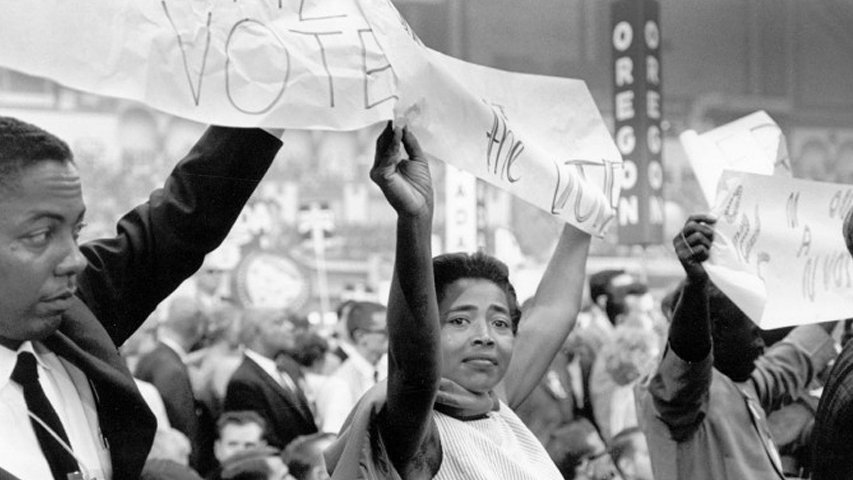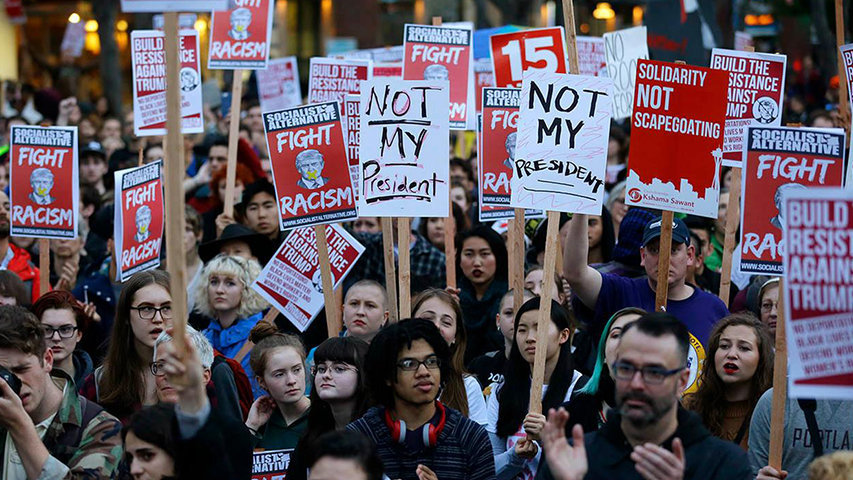
Can Grassroots Leaders bring the Change We Want?
by Yash Saboo September 14 2018, 4:50 pm Estimated Reading Time: 4 mins, 7 secsIt has become increasingly clear to every citizen that our elected officials are very good at rhetoric, at pointing fingers, and fostering an increasing sense of acrimony throughout the country. What they are not good at is being the leaders they were elected to be.
This shouldn’t surprise anyone, least of all our elected officials themselves. They have been so busy pointing fingers, placing blame, and fundraising since years that they haven’t had any time to do the jobs they were elected to do. In fact, it has reached a boiling point and the only thing that will reduce the tension, bring all sides together at the table, and get our country back on track is genuine leadership.
Winston Churchill famously claimed that of all human qualities, courage was the most esteemed, because it guaranteed all others. He was right. Courage—moral courage—is the companion of great leadership. No politician could ever be viewed as exceptional unless he or she had it in spades. And historically there would have been no social progress if not for the presence of specific humans dissenting and breaking from herd-inspired suspicion and fear.

Sites@Duke - Duke University
At best, courage is self-sacrificing, non-violent, modest and based on universal principles—and immensely powerful. Think Mahatma Gandhi or Martin Luther King Jr. Regrettably, courage is also rare: think Gandhi or MLK again. And dangerous: both men were assassinated.
But "courage" seems to be just an inspiring word as our leaders have lost the sincere will to work together. Already, many have lost faith in international law and in the security architecture, writes The Economist. Takfirism—the ideology anchoring al-Qaida – still exists, is a proof enough. Takfirism should have been dismantled ideologically long ago, at the insistence of the international community. But it was not.
In Europe, there will be more campaigns against the niqab and hijab (coverings worn by some Muslim women), and their absent handshakes, egged on by the frothing-at-the-mouth right–wing. Yet there will probably be no campaigns against the sale of weapons or the provision of banking services to those who foster intolerance in Islam, notes The Economist. The situation will grow even more dangerous. In fact, the consequences could destroy Europe, the Middle East and South-East Asia.
Another instance is Israel’s 51-year occupation of Palestine appearing interminable, so many Palestinians are cynical about international law, international human rights law and the institutions designed to uphold them. The same could be said for the people of Western Sahara.
That Crimea can be seized by Russia, a permanent member of the Security Council, in violation of international law, also speaks volumes about the attitudes of the major powers. When Syria’s civilian population and medical facilities can be bombed daily, its people tortured and starved year after year, for seven years, is there any law at all? The same could be said of Yemen. And then there is Libya, the Democratic Republic of the Congo, South Sudan, Afghanistan, the Central African Republic, Mali, Somalia, Burundi, Cameroon, Venezuela and Nicaragua.
And the lesson? Mussolini invaded Ethiopia in 1935 and the League of Nations did nothing, could do nothing, to prevent or reverse it—with the dictator of Nazi Germany taking note.

Committee for a workers' International
"Who is taking note now?" asks Zeid Ra'ad Al Hussein, a writer.
There are grassroots leaders of movements against discrimination and inequalities in every region, he writes. Denis Mukwege, Angkhana Neelapaijit, an activist from Thailand, whose husband, a lawyer, disappeared in 2004 leaving her to become a most courageous activist, fighting against enforced disappearances. There are others too, from Bahrain for example: the Khawaja family, Nabeel Rajab, Maytham Al Salman and Ebtisam Al Sayegh, who have all shown extraordinary courage in the face of considerable adversity.
While some speak from an individual vantage point, fighting specific battles on behalf of their local communities, others lead broader social movements. Worldwide, they are not coordinated. But what if they were? What would happen if all the movements supported each other, openly and actively?
Lastly, Hussein leaves his readers with a thought. What if this coordinated, focused, human-rights movement had the backing of business leaders? There are business leaders who are also real leaders, and who have thought seriously about human rights; people like Barbara Novick of Blackrock, Paul Polman of Unilever, Microsoft’s Brad Smith and Deepmind’s Mustafa Suleyman. This has never been done before; but if we did do it, it might just deliver a sort of shock therapy to those dangerous or useless politicians who now threaten humanity. Maybe, just maybe, it would be enough to stop the rot, so that when a fool tips that first domino or strikes the tripwire they hurt no one but themselves, and we can hope that the injury is only a slight one.





-173X130.jpg)
-173X130.jpg)
-173X130.jpg)
-173X130.jpg)

_(7)-173X130.jpg)
-173X130.jpg)